

Imagine a plot to undermine the government of the United States, to destroy much of its capacity to do the public’s business, and to sow distrust among the population.
Imagine further, that the plotters infiltrate Congress and state governments, reshape their districts to give them disproportionate influence in Washington, and use the media to spread big lies about the government.
Finally, imagine they not only paralyze the government but are on the verge of dismantling pieces of it.
Far-fetched? Perhaps. But take a look at what’s been happening in Washington and many state capitals since Tea Party fanatics gained effective control of the Republican Party, and you’d be forgiven if you see parallels.
Tea Party Republicans are crowing about the “sequestration” cuts beginning today (Friday). “This will be the first significant tea party victory in that we got what we set out to do in changing Washington,” says Rep.
» Read more about: Hostage Crisis: The Sequester and a Tea Party Plot »


A Mediterranean diet, the New England Journal of Medicine reported Monday, can lengthen one’s lifespan. So inhabitants of southern Europe can look forward to long lives — of anxiety and privation.
Already mired in a depression comparable to that of the 1930s, Spain, Greece and Portugal are going to see things grow worse this year, according to an annual economic forecast released by the European Commission on Friday. Unemployment rates in both Spain and Greece — where a quarter of the populations are unemployed and the share of jobless young people exceeds 50 percent — will rise to 27 percent.
At least the leaders in power in 1930 had an excuse when the economy began to collapse. Then, there was genuine bewilderment among economists and governmental chieftains across the political spectrum about how to induce a recovery. From British Laborite Ramsay MacDonald to the German centrist Heinrich Bruning to American conservative Herbert Hoover,
» Read more about: Austerity: Will We Follow Europe’s Lead? »
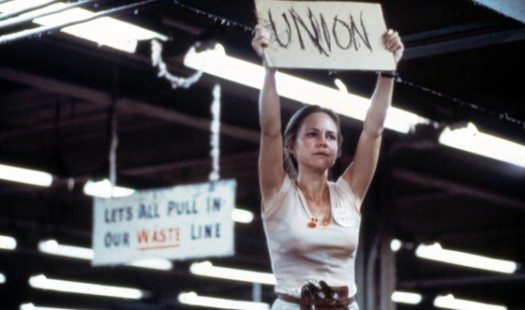

For all the talk of saving and rebuilding the middle class, no public official from the President on down has mentioned the U-word. The U-word? “Unions.” From the 1930s through the ’70s, unions turned working-class jobs into middle-class jobs. Hourly wage earners organized themselves into unions that could fight for livable wages, health and retirement benefits, safety rules, job protection and on-the-job respect. These became such national standards that even in the historically right-to-work states in the Deep South, many of these principles prevailed.
But for three decades those work standards have been under attack, wages have dropped — with benefits cut or stolen. Why is this happening? Because union membership declined as free trade agreements shipped those jobs off-shore, as business mergers stripped workers of health care, and as strategic corporate bankruptcies took away their pension funds. Workers have been asked to “give back” in order to keep their jobs from vanishing,
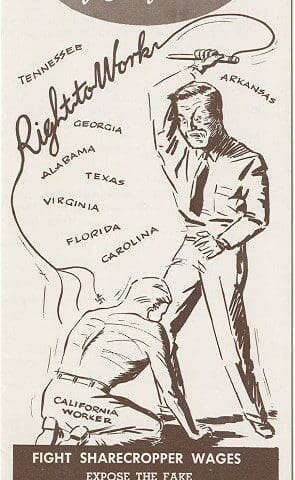
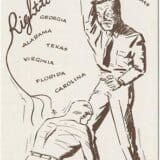
August 28 of this year marks the 50th anniversary of the famous March on Washington. For many people, the march was simply the site where Dr. Martin Luther King delivered his “I Have a Dream” speech. However, the full name of the march was the March on Washington for Jobs and Freedom, and it marked a high point of the modern Civil Rights Movement, after black communities and their supporters throughout the country boycotted buses, sat-in at lunch counters, rode in Freedom Rides, and marched in the streets. These massive protests were aimed at destroying, once and for all, the era of legal segregation — which had been a blot on this country since the end of slavery.
But organizers knew that the end of segregation without good jobs was no freedom at all. So, four of the march’s ten demands focused on employment issues. (See the ten demands and other items in the march’s “Organizing Manual No.


(This post first appeared February 20 on Truthout and is republished with permission.)
Republicans were quick to criticize President Obama last week after he proposed raising the federal minimum wage from $7.25 to $9 during his State of the Union address, but now a poll shows that a majority of voters agree with the president that the current minimum wage is not a living wage and a hike is in order.
A Rasmussen Reports national survey released on Tuesday found that only 15 percent of voters believe the current minimum wage provides workers with enough money to live on, while 72 percent said $7.25 an hour is not a living wage.
Voters remain more closely divided on actually raising the minimum wage, with 54 percent in favor of the raising the minimum wage to $9 an hour and 36 percent opposed to the proposal.
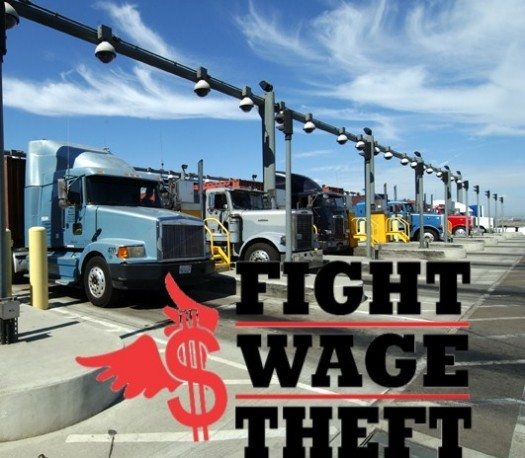
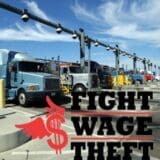
It’s almost payday. Imagine if you went to cash your paycheck only to find that your employer had instead billed you for the opportunity to work for them.
For drivers at Seacon Logix, paying to work was only the beginning of the abuses they faced from their employer, a midsized port trucking company based in Carson.
A group of nine Seacon Logix drivers has persisted for almost two years in seeking to reclaim their wages even as the company has reached a new low in an already notoriously low-road industry.
Seacon Logix didn’t just evade the law by claiming that its employees were “independent contractors,” allowing it to avoid basic responsibilities, like payroll, income taxes and workers compensation insurance.
It didn’t just pass on its operating costs to drivers and force them to pay for vehicle leases, registration and insurance payments by illegally deducting them straight out of drivers’
» Read more about: How Low Can a Port Trucking Company Go? »
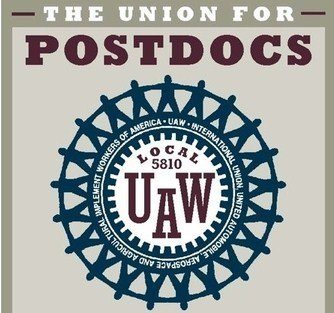
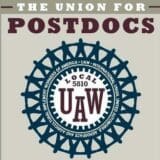
For the thousands of international students and researchers who come to U.S. universities each year, the academy is seen as a beacon of opportunity, where the people who work the hardest and [have] the best ideas rise to the top.
[To] a union representing more than 6,000 postdoctoral scholars (also known as “postdocs”) at the University of California, this promise means something – the majority of our members are immigrants working in the U.S. on guest worker visas, and they are here because they have worked for years to reach the forefront of biology, physics, engineering and other fields. They have already earned PhDs, and come to UC to perform cutting-edge research – think breakthrough cancer therapies, new models for the origin of the universe, stem cell research and more.
Imagine their surprise when after arriving at UC, they are told that although the contract the union negotiated states that health care coverage is available to all postdocs,
» Read more about: University Postdocs Demand Health Care Rights »


In English, “sequestration” sounds like obscure policy wonk jargon. In Spanish, it has a very simple meaning: “kidnapping.”
The kidnapping of our economy is exactly what’s in store for later this week, unless a last minute deal derails plans to cut $85 billion from the federal budget. Corporate backed politicians like Sen. Tom Coburn (R-OK) claim that the cuts target “an excessive, bloated, big federal government that’s highly inefficient and highly ineffective.” But the truth is that the cuts will slice deep into our most important safety net programs.
What will sequestration mean for our families? According to a simple summary from the non-partisan United Way the effects in Californian’s health and education include the following:


Tenants Together has launched “It’s Your Money,” a new campaign to stop security deposit theft by California landlords. The campaign website, www.YourDeposit.org, features know-your-rights information for tenants, tips on how to protect deposits, tenant stories and policy recommendations. The site allows tenants to share their security deposit horror stories.
Security deposit theft is one of the most common grievances among California’s 15 million renters. In a recent survey, over 60 percent of Tenants Together members reported improper withholding of deposit money. This is an astonishing figure, but not one that surprises anyone working with California tenants.
“Millions of dollars are being stolen from tenants every year,” commented Dean Preston, Executive Director of Tenants Together, California’s statewide organization for renters’ rights. “It’s gotten so bad that tenants paying their security deposits don’t ever expect to see that money again. Something has got to change.”
Unlike in many other states,
» Read more about: Protecting Renters From Security Deposit Theft »


As we settle further into Black History Month, it’s the perfect time to reflect on Martin Luther King Jr. and his often under-acknowledged passion for economic justice. King stands as a pillar of civil rights leadership and the movement for equal rights. His legacy is special to the black community, and as a symbol, he has become an extraordinary role model to all people. However, to see King’s legacy only through this lens would miss much of his work. King was also a union ally and champion of economic justice.
King understood clearly that the battle for racial equality would be empty without a parallel fight for economic equality. “[What] will [the Negro] gain by being permitted to move an integrated neighborhood if he cannot afford to do so because he is unemployed or has a low-paying job with no future?”[i] Having equal rights without the means to exercise those rights becomes an empty promise,


In his State of the Union Address this month, President Obama called for a much-needed increase to the federal minimum wage. Almost four million American workers are paid at or below the minimum wage of $7.25 an hour for their work, adding up to about $14,500 per year, per person for a full-time, 40 hour per week job. This doesn’t come close to covering the cost of living for a single person, let alone a family.
In the food retail sector, unfortunately, raising the minimum wage might not make much of a difference to those employees that are most vulnerable. Grocery stores and other food retail outlets are already avoiding minimum wage and benefit requirements for many workers by keeping them in part-time jobs. Realistically, if a worker can’t get scheduled for 40 hours per week of work, then minimum wage requirements cease to be effective in ensuring an annual income floor.


The Los Angeles County Metropolitan Transportation Authority (aka L.A. Metro) needed new, clean buses. If L.A. Metro had simply followed current buying protocol, its single focus would have been on finding a company to deliver the lowest-cost buses. In all likelihood, this would have resulted in jobs going overseas (but for some final assembly jobs on U.S. soil).
Instead, in January, L.A. Metro awarded a $305-million contract for 550 clean-fuel buses to New Flyer Industries, a Canadian company with dedicated manufacturing plants in the U.S. The bus order means that the company will expand its factory operations in St. Cloud, Minn., add a third shift, hire 150 women and men from the local community and create another 50 jobs in Los Angeles. L.A. Metro took a longer-term view of how “big-ticket” transportation purchases — most of them supported by federal funds — can stimulate high-quality jobs and manufacturing in the United States.
» Read more about: L.A. Metro Bus Contract Creates Jobs, Lifts Economy »


I was born in 1946, just when the boomer wave began. Bill Clinton was born that year, too. So was George W. Bush, as was Laura Bush. And Ken Starr (remember him?) And then, the next year, Hillary Rodham was born. And soon Newt Gingrich (known as “Newty” as a boy). And Cher (Every time I begin feeling old I remind myself she’s not that much younger.)
Why did so many of us begin coming into the world in 1946? Demographers have given this question a great deal of attention.
My father, for example, was in World War II — as were the fathers of many other early boomers. Ed Reich came home from the war, as did they. My mother was waiting for him, as were their mothers.
When it comes down to it, demographics is not all that complicated.
Fast-forward. Most of us early boomers had planned to retire around now.
» Read more about: Immigration Reform Can Help Solve the Retirement Crisis »


You have to feel a little bad for Texas Gov. Rick Perry. He came all the way to California this week to “poach jobs” and left empty-handed. Maybe Perry hasn’t read the studies that show very few jobs move from California to other states. Or maybe he wasn’t aware that California is on the rebound in a big way, now leading the nation in job creation. At the end of the day, Perry’s trip really was all hat, no cattle.
Over the last week, there’s been a lot of silly media coverage comparing Texas to California. It’s almost like a sports rivalry at this point. Perry says his low-regulation, low-government service, low-wage economic model is the way to go.
As a native Texan, I know better. I still remember going to the beach in Galveston and having to use turpentine to clean my feet before I left because of the oil.
» Read more about: State’s Enterprise Zones Make Rick Perry Look Smart »
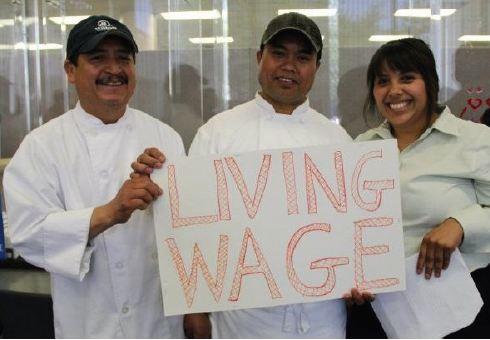

(The following appeal comes from the Long Beach Coalition for Good Jobs and Healthy Communities.)
On November 6, Long Beach voters overwhelmingly approved a minimum wage for hotel workers in their city. The law guarantees that these workers will be paid about $2,000 a month for full-time work and receive five paid sick days a year. (Fact sheet.)
These modest provisions would help hotel workers and their families, while boosting the economy for everyone in Long Beach. The hotels, many of which are owned by wealthy out-of-state corporations, have been thriving and could easily afford to pay the minimum wage while maintaining healthy profits. However, they are doing everything in their power to thwart the will of the voters and punish their own employees – putting a few extra dollars of profit ahead of the interests of Long Beach residents and businesses, as well as the lives of hotel workers’
» Read more about: Tell Long Beach’s City Council to Enforce the Will of Voters »


“Fix the Debt,” the CEO-led campaign promoting fear and what some have called near-hysteria over the national debt, has met its grassroots nemesis: “Flip the Debt.” While speaking at a Fix the Debt conference on Monday, Honeywell International Inc. CEO David Cote was interrupted several times by Flip the Debt protesters over tax loopholes that allow companies like Honeywell and General Electric to pay far less taxes than ordinary Americans.
Three minutes into Cote’s keynote address, the first heckler trumpeted:
“Fix the Debt claims to seek bipartisan solutions to reduce the deficit, but Fix the Debt is nothing more than a CEO lobby whose real objective is huge corporate tax breaks and drastic cuts in Social Security, Medicare and Medicaid. David Cote and his CEO friends receive a lot from government: In 2011, Honeywell received $725 million in government deals, making it the 35th largest federal contractor.
» Read more about: “Fix the Debt” Meets Its Match: “Flip the Debt” »


On January 23 of this year, Scabby the Rat, a 16 foot tall rodent first inflated in 1990 by protesting Chicago bricklayers, had a scare. Sean McGarvey (@BCTDPrez), president of the AFL-CIO Building and Construction Trades Department, took to Twitter following a meeting with presidents and state councils to address his 488 followers: “Issued a call to retire the inflatable rat. It does not reflect our new value proposition.” Jill Cashen, Communications Director for United Food & Commercial Workers (UFCW) responded favorably @BCTDPrez and to her 387 followers, notching up the rhetoric to #deflatetherat.
On January 24, @ScabbyTheRat (7,737 followers) who reports on “anti-labor activity no matter where it happens” had a day in the sun, albeit it a busy one. Catapulted by Mike Elk (@MikeElk, 10,278 followers) — perhaps labor’s most dedicated and voracious Tweeter — and his story from In These Times, @ScabbyTheRat tweeted 28 times,


We are workers who move Walmart merchandise at a private warehouse in Chino, California. Just a couple of weeks ago the state of California ordered the warehouse owner to repay us more than $1 million in stolen wages. The California Labor Commissioner determined the warehouse operator, Quetico LLC, had shorted our paychecks and those of more than 800 workers.
Para leer en Español haz cliq aquí.
We are so happy that justice has been served, but we continue to risk our jobs just because we blew the whistle. The company is denying it did anything wrong and appealing the state’s ruling. In the meantime we are worried about retaliation and losing our jobs. We don’t know if we will be fired. Walmart has done nothing.
You can help us. Sign our petition to Walmart.
» Read more about: Petition: Walmart-Contract Workers Fear Retaliation »


My friend pastors a vibrant congregation in the Mid-City area of Los Angeles. Her people reflect the neighborhood and the church worships in both Spanish and English. In a conversation this week I asked her how her folks were doing. Her voice dropped, and she shook her head. “There are no jobs,” she said, “and the ones who work can only get part-time hours.” With dismay, she said, “I don’t know how they are making it.”
I don’t either. At one extreme, high-end properties – homes that sell for several millions of dollars – had a banner year in 2012. Sales of super-expensive automobiles reached record levels. Exotic vacation destinations are packed. The number of jobs in Los Angeles County has reached about 4.3 million, almost the number we had before the Great Recession began five years ago, although there are now also more people looking for work than then.
» Read more about: Of Biblical Proportions: Inequality and Poverty Wages »


Most of us know how badly Walmart treats its employees. Yet whenever the remedy of paying a living wage is proposed, opponents always argue that the cost to Walmart shoppers is too high, and that low-income consumers will be hurt the most.[1]The question is: What will a living wage for Walmart workers cost Walmart shoppers?
First, some background. A 2005 study found that Walmart jobs in metropolitan areas pay less and are less likely to offer benefits. Other researchers demonstrated that Walmart workers earn on average 31 percent less than workers in large retail stores as a whole and about 60 percent of the wages of unionized workers. They also found that an astounding 75 percent of full-time workers with at least one year on the job made below $10 an hour and less than half were enrolled in Walmart’s cost-prohibitive health plan.
Moreover,
» Read more about: Walmart: The Low Cost of High Road Retailers »